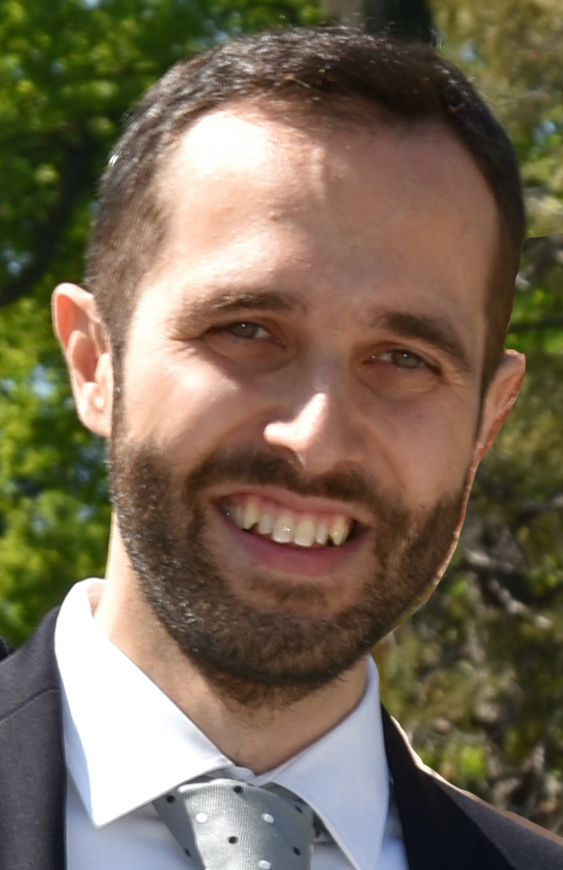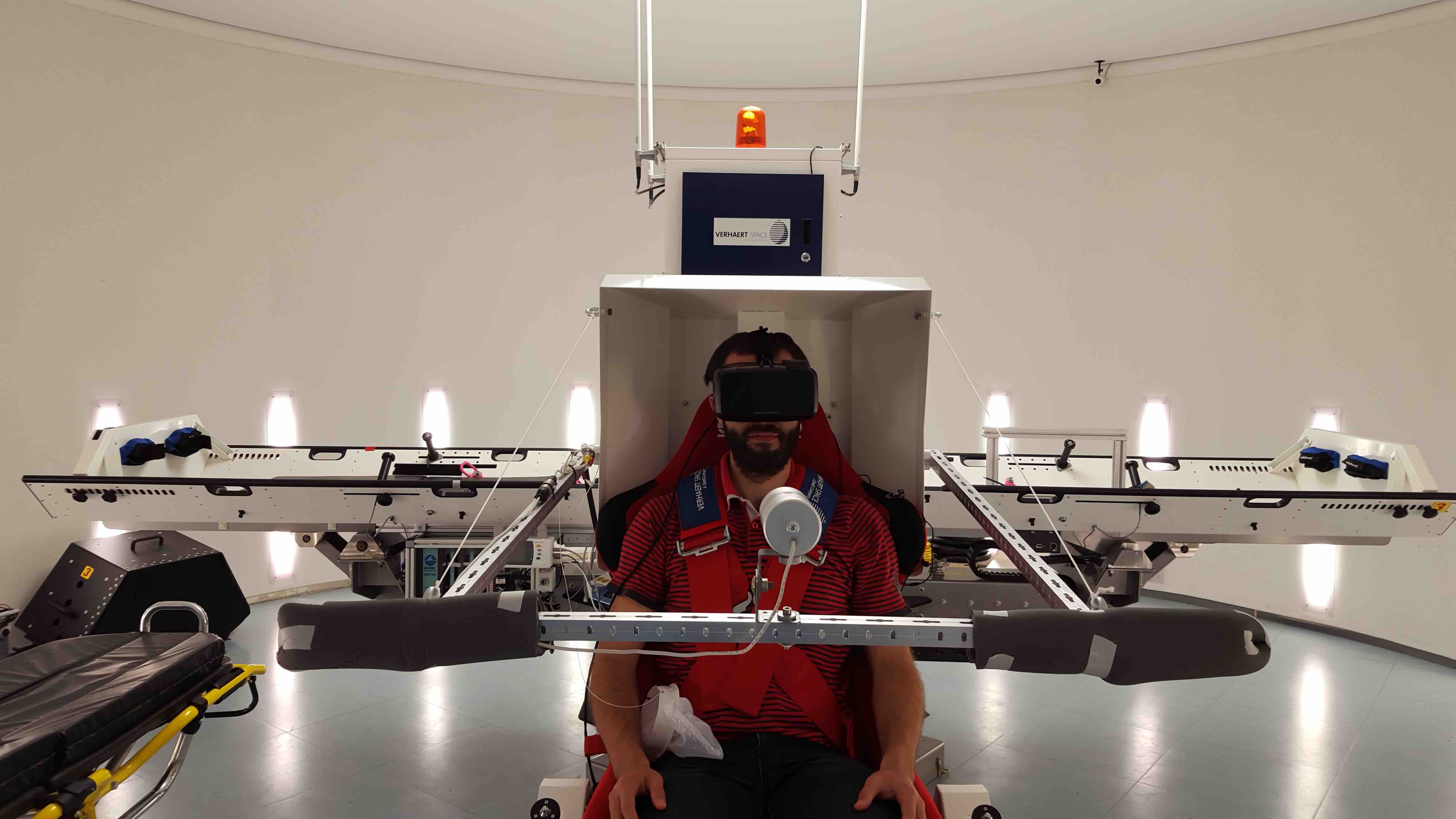Navigation auf uzh.ch
Navigation auf uzh.ch
This month we have interviewed Giovanni Bertolini, group leader of the Swiss Space Travel and AiR Sickness (SSTARS) group at the Department of Neurology, University of Zurich. His research focuses on the mechanism of habituation and learning of self-motion perception in novel motion environments.

What is the main area of your research?
Vestibular adaptation and space motion sickness. We need to sense 1g to integrate sensory cues for orientation and self-motion perception. I study how to adapt humans to get a stable self-motion perception at any gravity level, w/o motion sickness.

What did bring you to the Space sector?
I love Space since I was a child. I happened to work on motion sickness for Earth-based problems (e.g. self-driving cars or VR/AR). As I found out that 70% of astronauts suffer motion sickness after g-transition, I began to work on a solution.
What do you like most about your job?
The variety of direct applications, ranging from challenges of new technologies on Earth - e.g. sickness with self-driving car - to improvements of life in space - e.g. astronauts training. I learn something different every time I start a new project.
What do you like most about Space?
Professionally, the need (and the possibility) to interact with people from different fields. As everything in Space has to fit multidisciplinary requirements, this force confrontation with points of view and ideas that bring new light in my own research. Personally, Space is the deepest unknown frontier and I love to see (any) step toward this frontier.
What would be the greatest achievement in the Space Sector?
To be able to live and work in space as we do on Earth.
You are part of the UZH Space Hub: What do you think this will mean for you and your research?
Space Hub will offer a fundamental opportunity to get in touch with knowledge and expertise complementary to mine, as well as with problems and questions of researchers from multiple fields and with company. This is fundamental in Space Sector as multidisciplinarity is not a plus, but an actual requirement for any advancement in Space.